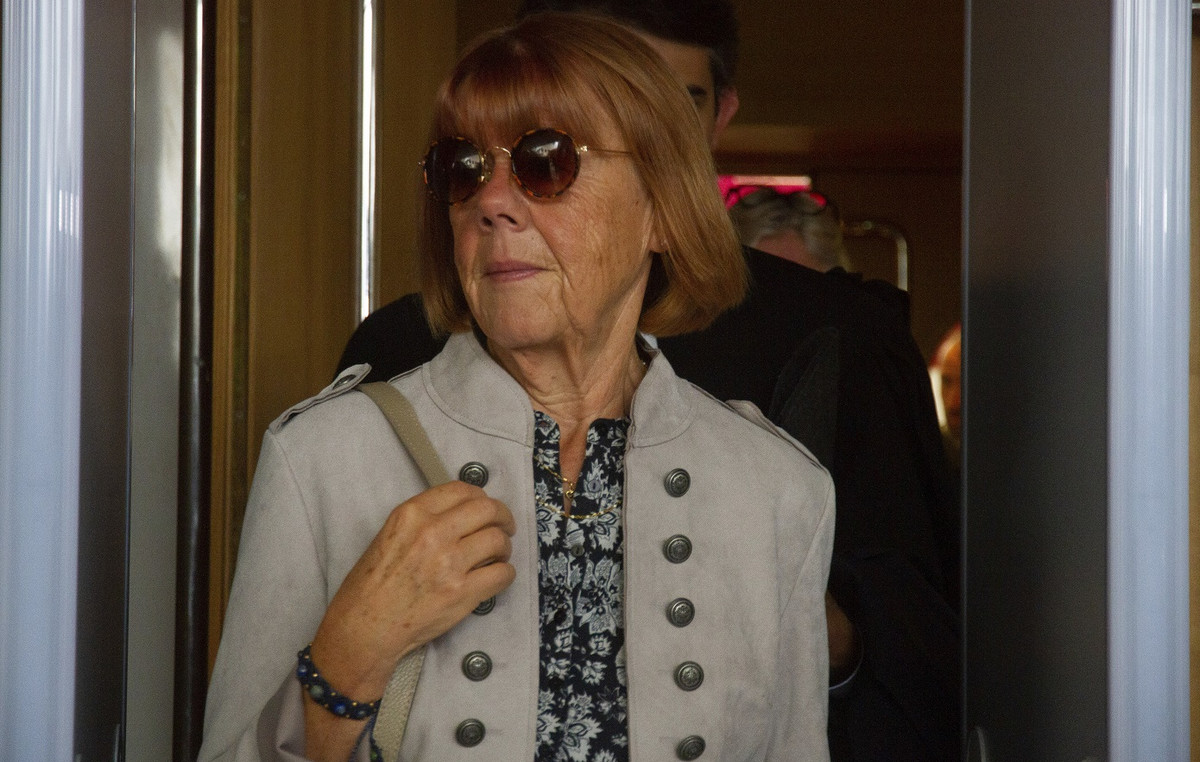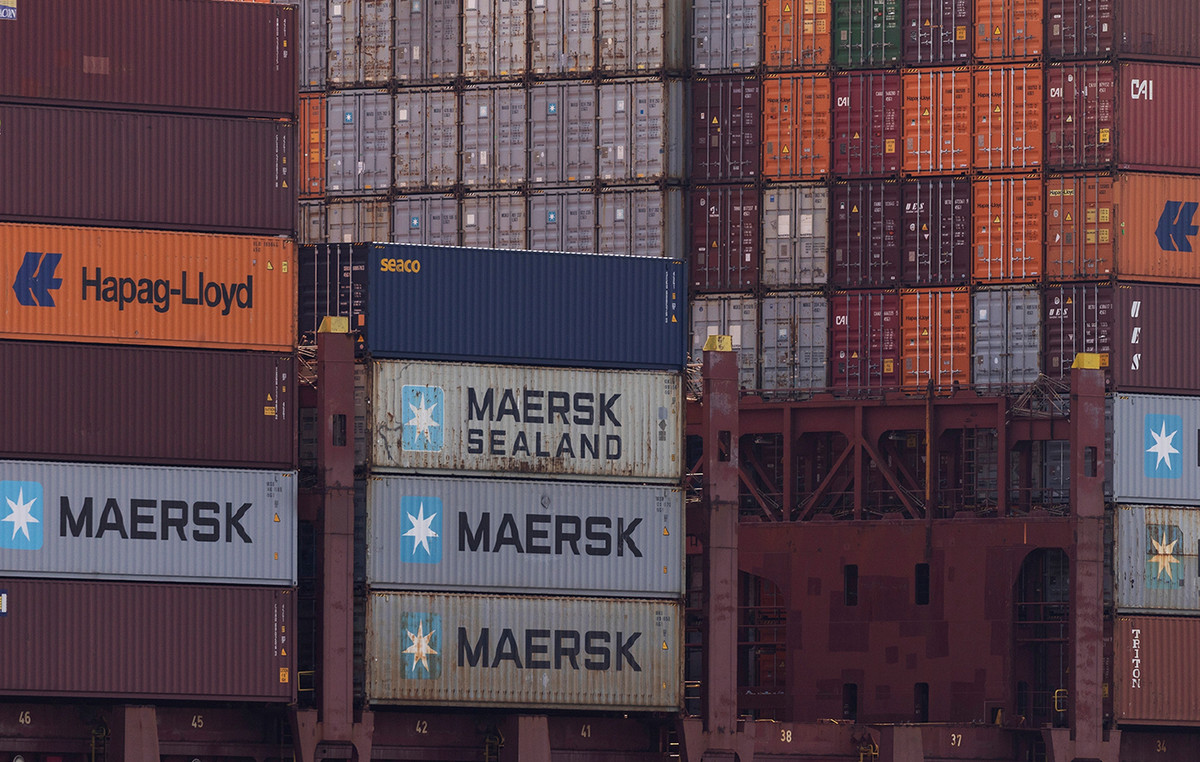The São Paulo stock exchange had a positive session this Thursday (24th), but that should be marked by low liquidity, given the absence of Wall Street due to a holiday in the United States and a game of the Brazilian soccer team in the World Cup in the afternoon.
Part of the relief, after two consecutive declines in the Ibovespa, was supported by the decision of the president of the Superior Electoral Court (TSE), Alexandre de Moraes, to reject an action by the coalition of President Jair Bolsonaro (PL) asking for extraordinary verification of the second round of the election.
At 15:20, the Ibovespa rose 2.83%, to 111,903.51 points. The financial volume amounted to R$ 13 billion. The commercial dollar fell by 1.18%, quoted at R$5.310 on sale.
At the beginning of the week, representation on the TSE added noise to a market already offended by the country’s fiscal prospects and the absence of definitions on the ministerial team of president-elect Luiz Inácio Lula da Silva (PT).
These issues (fiscal/ministries), however, keep the Ibovespa oscillating at narrow margins, since without definitive decisions there are no catalysts to motivate purchases – or sales.
According to XP Investimentos, local political issues remain the main trigger for the movement in local asset prices and the focus remains on the proposed constitutional amendment that would allow spending above the ceiling in 2023.
“Financial agents continue to add risk premiums to local assets, in the midst of uncertainties related to the amount of expenses that must remain outside the ceiling in the coming years”, they observe in a comment to clients.
The penultimate trading session of the week also included yet another data showing acceleration of inflation in Brazil. The November IPCA-15 rose 0.53%, after rising 0.16% in the previous month, driven by fuel prices. The expectation in a Reuters poll was for an advance of 0.56%.
In Qatar, Brazil debuts in the World Cup against Serbia, at 4 pm (Brasília time).
Stock markets on Wall Street are closed this session for the Thanksgiving holiday.
Highlights
– PETZ ON rose 6.33%, to R$7.42, seeking support in the session’s calmer climate to reduce losses in the month, which until the day before exceeded 15%.
– B3 ON appreciated 5.84%, at R$ 11.99, also reacting after a more negative start to the month. The role has fallen around 15% in November. Analysts at Citi cut earnings forecasts for the company this week and lowered the price target from 17 reais to 14 reais, but reiterated a “buy” recommendation, citing a long-term outlook.
– QUALICORP ON advanced 8.08%, at BRL 5.82. In the health sector, REDE D’OR ON advanced 6.27% and SULAMÉRICA UNIT gained 5.13%.
– KLABIN UNIT lost 0.56%, at 21.19 reais, with the pulp and paper sector among the few falls on the Ibovespa in the session, amid the decline of the dollar against the real and fears about the effect of new cases of Covid in China on demand for commodities. SUZANO ON fell 0.11%, at 55.65 reais.
– PETROBRAS PN rose 2.65%, to 24.06 reais. Amidst uncertainties about the strategy of the state-controlled oil company from 2023, Senator Jean Paul Prates (PT-RN), from the government transition group, said this Thursday that the Lula government will not be interventionist in the company. Oil operated in a slight drop abroad.
– VALE ON increased 1.08%, to 81.8 reais, supported by the rise in iron ore futures on the Dalian stock exchange, which broke a sequence of three consecutive losses. The most traded contract ended daytime trading up 1.3% at 732.0 yuan ($102.36) a tonne.
– ITAÚ UNIBANCO PN advanced 3.31%, to 26.87 reais, and BRADESCO PN appreciated 2.48%, to 15.71 reais, reinforcing the positive tone of the Ibovespa on the day. On the sector’s radar, Banco Safra said on Wednesday night that it acquired control of financial conglomerate Alfa for 1.03 billion reais.
Dollar
The US currency fell sharply against the real this Thursday morning, following the external good mood after signaling that the US central bank may reduce its monetary tightening pace, while, in Brazil, the rejection of the action that calls for an extraordinary verification of the second round of elections sustained the sentiment.
Investors warned that the session will have low liquidity due to the Thanksgiving holiday in the United States and the debut of Brazil in the World Cup, at 4 pm (Brasília time), which could cause exacerbated movements in the exchange rate.
Minutes from the US central bank’s last policy meeting showed that a “substantial majority” of policymakers agreed that it “would probably be appropriate shortly” to slow the pace of interest rate hikes.
“What caught attention, as a novelty, were more ‘dovish’ signals (inclined to less aggressive tightening), such as the fact that they had stated, for the first time, that they expect a recession in the US as a baseline scenario, as well as several participants using risk of financial instability as one of the reasons for slowing down,” commented Nicole Kretzmann, chief economist at Upon Global Capital, on the eve’s minutes.
“From now on, the minutes signaled that the Fed will be more cautious in its decisions to raise interest rates and that the body will have more patience to assess the accumulated result of previous hikes in the economy.”
A moderation in the pace of interest rate hikes by the Fed would likely make room for riskier currencies to appreciate, experts say, as it would make the interest rate differential between the US and other countries less favorable to the world’s largest economy.
Despite the drop in the dollar this Thursday, successive postponements of the presentation of the final text of the Transition PEC –which the elected government of Luiz Inácio Lula da Silva seeks to approve to allow extra-ceiling spending from next year– continued to be a cause for concern .
“What you see at each attempt to advance, at each signal issued, is that the PT is extremely uncomfortable with the fiscal constraints and that, if possible, it does not want to respect them, even though the widely known macroeconomic consequences may occur”, Jason Vieira, chief economist at Infinity Asset, said in a report.
The elected government initially proposed in the PEC an extra-ceiling spending of almost 200 billion reais for an indefinite period, but a good part of the markets hope that the text can be reduced in negotiations with Congress.
The uncertainty about who will be Lula’s finance minister deepened investors’ discomfort, which has fueled speculation that a more left-wing name, such as former São Paulo mayor Fernando Haddad, could be appointed to the post.
“With the challenges imposed for the coming years, the absence of a qualified technician for the position, something that is not lacking in Brazil, has generated all the stress in the market and, for the time being, there are no signs that this posture should change”, he evaluated. Scallop.
Source: CNN Brasil
A journalist with over 7 years of experience in the news industry, currently working at World Stock Market as an author for the Entertainment section and also contributing to the Economics or finance section on a part-time basis. Has a passion for Entertainment and fashion topics, and has put in a lot of research and effort to provide accurate information to readers.







